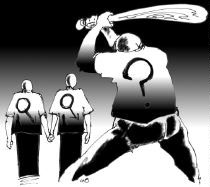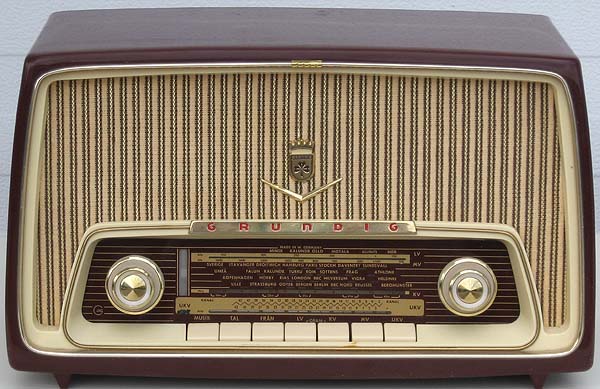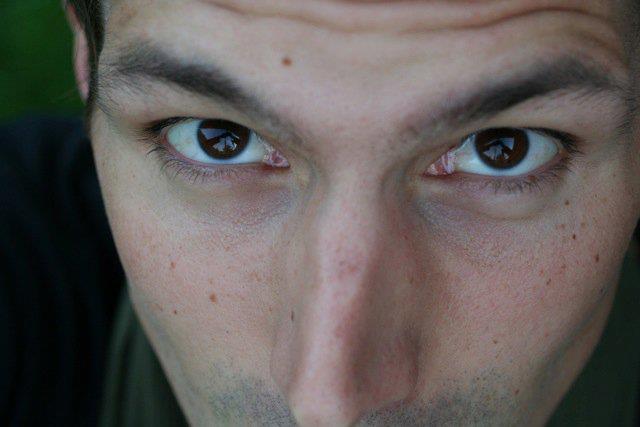On caricatures, freedom and the nature of assholes
13 januari 2015 | In Comedy Emotion theory Ethics Hate Crime media Moral philosophy Philosophy of Law politics Psychology Psychopathy Self-indulgence Uncategorized | Comments?I have to admit, I’m not overly fond of caricatures. Never have been. I guess sometimes they manage, just like a good metaphor does, to capture something important about its object that was not as obvious before. The thing that a caricature brings out about the object is usually intended to render it ridiculous. Most things are partly ridiculous, of course, it’s almost never a useless way of viewing a thing. But it becomes particularly useful if the thing, or person, or group, is in power, is pompous, is revered to an unreasonable extent. It becomes less so, even harmful, if the thing or person, or group, is already despised, disenfranchised, already treated as ridiculous.
The reason why I’m not overly fond of caricatures, or metaphors for that matter, is that they rely on putting emphasis on certain things at the expense of other things, and the result, the ”translation”, as it were, depends on whether that serves to correct the received view in order to reflect the actual importance of those things. Caricatures have a history of ridiculing power, and that history is well-rehearsed these days. But they also have a history of serving power. Of dehumanizing people it deems of less importance, which makes those people even easier to disregard, or even to kill.
There is an argument that says that we have freedom of speech in order to protect precisely the sort of statements that we do not like. This is spurious. It may be true that the extent of freedom of speech can be measured by exactly how offensive, vitriolic, hateful, debasing, threatening expressions that it allows, but it hardly seems to be the point of having freedom of speech. Some people will say that freedom is a value in itself. Others, like the more often quoted than read J.S. Mill, say that freedom of speech is an instrumental value, which serves a function. And it can be limited when it fails to serve that value. On this account, we can say that freedom of speech is a matter of costs and benefits. The offensive can occasionally be a benefit, the hateful very rarely is, but we may want to preserve the right to make hateful assertions because the total value of relatively unregulated speech is positive. The benefits may outweigh the costs. (It should be noted that this analysis could, and, I believe, should, adjust for fairness. If the costs and benefits are unfairly distributed so that the worst off bears the greatest burden, the cost may be unacceptable even if it is outweighed in absolute terms). Hate speech laws tend to draw a line between the offensive (which is allowed) and the hateful (which is not), but some legal scholars and a lot of libertarians believe this distinction fail to track anything of moral importance.
Now. In moral philosophy, the notion of an asshole is quickly turning into a technical notion of considerable use. An asshole is a person that does not infringe on other peoples rights, but does everything he/she can to reap the benefits for him/herself, and nothing to help others. It is the kind of person that uses freedom of speech to say all the worst things he/she is allowed to, while contributing nothing to a worthwhile discussion. The behavior of such people tend to be on the cost side in the cost/benefit analysis of a right. Assholes are on the cost side, and when they become too many, the instrumental value of certain freedoms decreases. At the same time, the fact that we tolerate them (even encourage them in certain contexts) may be a testament to the strength of our society, our resilience. Assholes also serve the considerable function of demonstrating the gaps in our systems and institutions.
I’m going somewhere with this. I have not made myself familiar with the works of Charlie Hebdo. I don’t know french, and I’m not sufficiently familiar with the cultural and political context. If I understand things correctly, their tendency has been to make fun (if that is the right word) of power and pompousness in all it’s guises. It certainly is no straightforward instrument of power. But equal treatment does not amount to equal effects, especially when the people and groups treated have different social standings to begin with. Some of their work may render things ridiculous that we all benefit by viewing in that light. Some of it may serve to dehumanize and ridicule people that are already being discriminated against, whose social standing in the context is low. The latter is an unmitigated cost, and it is the work of assholes, in the technical sense described above. Caricaturists will often tend towards asshole-hood. And it is possible that they should, that it is for the good that there are people, and publications, like that. But it would probably be unbearable if we were all like that. And while the extent of free speech may be measured by the worst things it allows, the value of it must be measured by the best things it allows that would otherwise have been banned.
Inexcusable racism
24 juli 2014 | In Emotion theory Ethics Hate Crime media Moral Psychology politics Psychology | Comments?Everyone’s a little bit racist. Basic cognitive functioning relies on generalizations, after all. Unwarranted initially, in order to get off the ground, and then more or less supported, or rejected, or revised by experience, by evidence. Slightly less basic cognitive functioning requires that we adjust our generalizations in the face of evidence. We adjust our explanatory categories, we fine-tune and narrow in on something that starts to look like likelihood. Or, rather, we do this when there’s sufficient reasons to do so. And those reasons are not just epistemological, they are to a large extent pragmatic. Most of us are lazy thinkers, and all of us have limited time to spend on adjusting categories. We only do when it’s useful for us to do so, or when we have the time and interest to do so at our leisure.
We assign significance to superficial differences like skin color, mode of dress, language, gait, because superficial differences are what signifies internal and explanatory differences when no other information is readily available. (To be fair: superficial difference often DOES correlate with less unimportant things.)
Prejudices are explanatory shortcuts, and quite often they serve us well. Sometimes by being dead-on, otherwise by knitting us closer together with others with similar needs, who jumped to the same unfounded conclusions about the explanatory order of things. The prosocial function of shared false beliefs should not be underestimated. Organized religion springs to mind.
People are, by most accounts, naturally geared towards bigotry, at least under the circumstance of groups competing for resources that seems to have prevailed through a significant part of our formative evolutionary past. The thing to explain is not that we are bigoted, but that we occasionally stop. (Even so, what categories matter, and how to assign value, is, of course, learnt. The tendency is present in the cognitive default state, but needs triggers and particulars to get underway and be filled by content. A person born into a truly egalitarian world would arguably have the tendency to assign significance to the superficial, but lack most of the triggers to do so, and the guidance to do so in any particular manner. Bigots, if they were still to develop, would be of a much more idiosyncratic ilk).
We may be partially excused for being racist, then, as it is in our nature to make a big deal out of differences, and we can often find at least some evidence to back a prejudice up. We are likely to do this, as our prejudices are often at least partly emotional in nature, and we are likely to go looking for confirmation, rather than rejection, of the rationality of those emotions. Emotions too have an evolutionary function, as indications we do well to trust when information as the the value of things is scarce. Awkwardness in the face of the unfamiliar calls for post hoc rationalization (ironically, the pressure towards a racist explanation of that awkwardness increases when there is a reluctance to self-attribute prejudice).
Yet we do blame people for being racists and are presumably right to do so. Why? Because we have every opportunity to revise our first impressions. The evidence as to the irrelevance of these superficial differences is so overwhelming, and the case for the basic equal value of persons is so much stronger than any alternative account, that there is really no excuse if you’re an adult, intelligent person living under non-warlike conditions (people at war, or under extraordinary stress, may sometimes be excused).
The point is that people should be blamed, not merely for harboring racist (and other, avoidable) prejudices, but for failing to revise them in the face of evidence, and for the failure to look carefully enough for evidence that falsifies that prejudice. In many cases, the reason for such failures is nothing more sinister than basic cognitive laziness and self-interest.
There exist, of course, a skeptic safe haven for the bigoted, and it consists of distrust in the sources of evidence. If you believe that, say, the liberal elite has an agenda to mislead concerning the nature and character of the groups you disfavour, you may well protect your prejudices against such challenges. The strategy is fundamentally flawed, as it depends on not adopting skepticism in equal measures to other sources of information, like the sources you use to entrench and confirm your pre-existent prejudice. But the model provides some light when it comes to explaining why some people remain bigoted. It also shows the depth of the problems caused by societal distrust.
The When Law and Hate Collide Radio Documentary
25 november 2013 | In academia Crime Hate Crime media Philosophy of Law Self-indulgence | Comments?At the fourth meeting of the research project ”When Law and Hate Collide”, which took place in Brussels in 2012, we recorded a radio documentary. It features the project members Michael Salter, Kim McGuire, Christian Munthe, David Brax (that’s me), Caroline Bonnes and Michael Fingerle along with noted experts Paul Iganski, Henri Nichols of the FRA, Paul Gianassi from the UK Ministry for Justice, Joanna Perry from OSCE-ODIHR, Jackie Driver from the Equality and Human Rights Commission and UCLAN’s Bogusia Puchalska.
I identity six types of justifications for penalty enhancements at 10:40 and the possible criteria for inclusion as a protected group at 22:47
And here it is:
Hello, new reader
16 april 2013 | In academia blogg-launch Happiness research Hedonism media Psychology Self-indulgence | Comments?Hello! If you’ve just found your way here, odds are that you did so because of this article http://www.dn.se/insidan/insidan-hem/for-att-lyckas-med-lyckan-far-man-inte-vara-for-krasen
Feel free to look around. The last two years of posts deal almost exclusively with hate crime. If you want something more substantial on that topic, you may start off with this video
And maybe take a look at this rather hefty text, co-authored with Christian Munthe:
http://www.academia.edu/2550264/The_Philosophy_of_Hate_Crime_Anthology_Part_I_Introduction_to_the_Philosophy_of_Hate_Crime
If you are more interested in my work on hedonism, here’s the full text of my dissertation ”Hedonism as the Explanation of Value”:
http://lup.lub.lu.se/luur/download?func=downloadFile&recordOId=1455027&fileOId=1466315
Enjoy!
The limitations of the ’more speech’ solution
30 november 2012 | In Crime Hate Crime media Moral philosophy politics Uncategorized | Comments?On the 25th of november the youth wing of the swedish social democratic party held an action they called ”nätfight” (”net-fight”). The idea was, for this day at least, not to let all the xenophobic nonsense that flourish on various internet fora to stand unopposed. Arguments were to be made. It’s a ”take back the internet from the Trolls” kind of initiative. Most non-xenophobic people dislike engaging in these conversations (especially those that have tried without result) as very little good is likely to come out of such an engagement. Perhaps we believe that engaging will only make things worse. Xenophobic views are not primarily based on arguments, and are unlikely to disappear or be made more moderate on the basis of argument.
This action is similar in idea, but different in content, to two other recent attempts to counter the dark sides internet. The first was launched by a swedish journalist and involves ”love bombing” of sites and Facebook pages where young people are subjected to bullying. The other started with the #signyosonisgay hashtag, which started as a homophobic method of ridicule, but was turned into a medium to show love and support for homosexuals.
The first initiative is based on argument, the other two is based on ”crowding out” bullying and xenophobia. But they have one central feature in common: they are based on the idea that the harm being done in the name of free speech (especially on the internet) is effectively countered by more speech.
Some will say this is the ONLY acceptable way to counter harms done via speech. The ”more speech” solution is preferable to regulation of speech – it’s results outperform in every regard, or so goes the argument. It’s more effective in discouraging harmful speech, it empowers the victims of such speech by demonstrating that both the arguments and other people are on their side, and it does not threaten free speech (and we should be reluctant to equip authorities with the means to restrict speech).
There’s no question that ”more speech” is for the most part a good solution. But the reasoning applies to almost any cause of harm: we should alert the police when we see an assault taking place but we should also intervene. Intervention, when possible, is often more effective on the precise same grounds. But should such a duty, and such initiative, replace the police and laws? Surely not.
Even if the ”more speech”, and ”intervention”, solution, is effective when active, it is basically unfair. It only protects those with friends or advocates active and good enough to make enough of a difference. The law exist, or should exist, to provide protection for those who are not protected by such resources, those who are not currently popular. To argue that ”more speech” should replace hate speech laws is similar to a rich person saying that the police is not needed when one may as well hire body guards.
The other reason is that, as stated above, evidence suggest that xenophobia is not based on argument, and thus will not disappear by argument. Arguments are effective in other ways, by strengthen the victim, and the victims advocate, but it is unlikely to deter the assailant. Criminal sanctions have the benefit of providing reasons to desist no matter whether you accept the argument or not. This, to, is the rationale behind the two non-reasons based initiatives above. Even if you cannot persuade the haters to stop, you may crowd them out, you can bore them and limit the impact of their statements.
But there’s nothing to suggest that these effects would be lessened by the presence of a hate speech law.
The Hate Crime Concept(s)
11 september 2012 | In academia Hate Crime media Moral philosophy Self-indulgence TV | 1 CommentA few months ago, the German partner of the ”When Law and Hate Collide” project hosted a splendid symposium on hate crime.
You can find all the presentations on youtube.
My presentation on the Hate Crime Concept(s) (the spoiler is in the title: there might be several such concepts) is here.
The slides, if you find that you need to look at something a little less distracting than me moving about nervously, are here: The Hate Crime Concept(s)
The christmas day hate broadcast
23 december 2011 | In Hate Crime media Moral philosophy Self-indulgence | Comments?’this the season and all that and whoever is on the non-news part of your state-subsidised radio or television is instantly promoted to the status of National Treasure. And about bloody time.
To be serious for just a minute, though (even though I don’t really want to): on sunday the 25th, swedish radio P1 will broadcast an episode of the soaringly popular program Filosofiska Rummet. This episode features yours truly in conversation with the magnificient police officer and educator Jeanette Larsson and professor of Criminal Law, Per-Ole Träskman. The topic is hate crime, it’s nature and moral status, and the point and justification of hate crime legislation. I may sound like a sceptic on the show, but that’s mostly a group-dynamics kind of thing.
The importance of unconscious prejudices
23 maj 2011 | In Crime Ethics Hate Crime media Moral Psychology politics | Comments?
According to the expressive theory of punishment, the main function of punishment, as of law itself, is to express the values and norms of a society. To insist on certain kinds of behavior, and to disparage others. Ideally, the laws reflects the values of the people currently making up that society, as well as those tested through time, by experience and debate, from the original lawgivers (the drafters of the constitution, say) onwards. When you commit a crime, the punishment tells you and others something about how society feels about it.
When it comes to Hate Crimes, this aspect is very important: Not only do we express norms that prohibit assaults, but we prohibit assaults motivated by, and expressing, prejudice. (In fact, a case can be made that it’s the expression of prejudice, and not its motivation, that make hate crimes worse). Even if we do not punish prejudice as such – we have other ways of expressing that norm – we punish its manifestations. And part of the motivation for doing so is to disparage prejudice as such. We could say that we punish the criminal for the hate-motivated assault, thus expressing a norm against such acts, but the punishment also sends a message against hate/prejudice in general.
Now, does hate crime legislation reflect the values of society? Are people that committed to tolerance and diversity?
The point of telling the criminal what we think is presumably linked to his/her current beliefs. So what does the hate criminal believe? What do the racists among us believe about the attitudes among the rest of us?
Legislation, government and NGO campaigning and at least some media content explicitly express commitment to diversity and resistance to racial prejudices. I take it that most ideological hate criminals realize that they are a minority, and that is part of what makes them dangerous – they are in the minority, feel threatened, disregard certain societal values and believe that they are in the right. Telling them that hate crimes wont be tolerated is hardly news, and they are unlikely to care. The expressive function, then, would be failing with regard to the criminal, but perhaps succeed with regard to the broader population.
Some racists presumably believe that, in fact, most people agree with them, even if they (we) don’t quite realize it. They blame political correctness for our current liberal and multiculturalist ”opinions”. This is very likely a persuasion that drives current populist right wing politics. They believe they only need to stir the inner racist in all of us, and that people, when it comes down to it, actually agree with them.
I’m pretty sure they are wrong about our conscious values. But are they wrong about us altogether? Among others (and more forcefully than most) the psychologist Jennifer Eberhardt argues that our prejudices are often unconscious and even at odds with what we explicitly believe. Even people who don’t associate black people, say, with criminality, tend to be primed by viewing black faces to more quickly recognize images of weapons, for instance.
If such findings reflect a broad societal phenomenon, we may ask what our values are, and how deeply committed we are to tolerance and diversity. Most of our prejudices never makes it to our conscious minds, but they still influence our judgments and behaviors. Without noticing it, tend to look for evidence that confirms our unconscious beliefs, and disregard others. This is why it is so important that even the most confirmed enlightened mind among us take a look at not only the content of their beliefs, but the inner workings of their decisions and behaviors. Most votes for the right-wing parties are not directly motivated by racism, but by the rationalizations that unconscious racism make us more likely to accept.
That a belief is unconscious does not mean that it reflects a deep fact about us. Quite the contrary – the test of whether an unconscious belief is ”truly ours” is to see what happens when it becomes conscious and tested against evidence and other beliefs. Do our conscious, considered values take precedence? Or do we adjust them to fit it our previously unconscious beliefs? What does happen when we become aware of such prejudices presumably depends on further psychological factors, but also by situational factors. Its uncomfortable to face ones failings, so perhaps there is a bit of pressure to deny that it is a failing. If people around you have a theory and a political program that incorporate your prejudice, there is some appeal in accepting that theory and that political program. It’s very important, then, that we have the means to address these prejudices when they surface, and someway to work with them.
If we are serious about our commitment to diversity and tolerance, we need to confront prejudices on all levels, and express that commitment in no uncertain terms in order to counter the populist appeal mentioned above. As has been remarked for instance by George Lakoff, liberals rarely want to address the unconscious by unconscious means. We are suspicious of such manipulation, and prefer the open and honest debate and believe that ”the truth will set us free”. But it’s much preferable when our values reflect our dispositions and emotions all the way down, when we not only believe and treat people of different races that they are equal, but instinctively react that way too. This may mean a lot more work than mere conscious conviction involves.
Does expressing our commitment to these values by enhancing punishment for hate crimes have an impact on unconscious prejudices? Or does it move our attention from the Reasons Why we should not be biased to Reasons having to do with fear of punishment? If it matters what the reason is why a criminal commits the assault, does it also matters why someone refrains from committing one? These are questions for another post.
Reaction speaks louder than words
14 december 2010 | In media Moral Psychology politics Psychology Self-indulgence TV | Comments?
I don’t know if you’ve heard, but someone apparently tried to make a religious/political point by blowing up car and self nearby a busy street in the city where we live. Presumably, the intention was to kill others to, but fortunately,that didn’t go so well. Presumably, the intention was also to inspire others to do similar things, but that seems unlikely to happen. If anything, the likely outcome, the one we need to make sure becomes the actual outcome, is a near universal condemnation of the act and of the somehow moral sentiment and moral reasoning that seem to have brought it about. This needs to, and it seems that it will, come from all ”sides”.
Thus far fairly direct, no? What’s peculiar is that almost everything I read about this event, and virtually everything that’s recommended on twitter and facebook and the like, are texts about reactions to it, rather than actual reactions. We’re all at least second-order now. Someone tries to kill people on the main street in the city where we live, and the knee-jerk reaction is to go online and find out what the New York Times make of it. The reactions are the news. Just like reports on the students protests in Britain outnumber reports on what they’re protesting about. Or reports on how that favorite footballer of ours is doing is outnumbered by reports on what the Italian newspapers say about how he is doing.
Reactions are more important than the events themselves. This is no complaint. In fact, I think it’s basically a correct and sound priority. First-hand knowledge is a beautiful thing but in almost any event, it’s more important how others react to it. Because the importance of the event, almost any event, depends on, and consists in, how people react to it. If people die in an attack, that’s terrible but people die all the time: what we must live with is their absence (but most of us did that anyway), but, more importantly: with how people react to it. Whether it changes their risk assessments and perceptions of certain groups, certain areas. Whether it influences their behavior. Whether or not it is the thing people talk about when they meet. I remember not reacting very strongly to the first reports of 9/11, but was made to realize it’s importance by the sheer amount of coverage.
And sure, part of this obsession is this anxious little country’s pride over making the international news, and shame and regret over not being able to be used as the good example any longer.
Obviously, one of the most important things to assess is whether this event makes it more, or possibly less, likely to happen again. If fear is warrented, it must be because we have good reason to believe that it’s more likely. Perhaps it’s more likely than we believed it to be before, even if it is less likely than it actually was before. It is as if we think that this person broke a tabu, and believe that others like him will think that it’s now ”OK”. It’s not, obviously. And if a point was made by that person, there is now less point for someone else to make the same point.
While it is important, as I say, to condemn this sort of act and the sort of moral reasoning that inspired it in direct and no uncertain terms, it is also important to understand what the point was, and where the reasoning went wrong. It’s easy and somehow comforting to chalk it up to madness (it makes it less likely to happen again, if there is no ”reliable” mechanism by which the action is motivated), but then we pass an opportunity to understand and prevent these things happening.
The baby critic
15 april 2010 | In Books Comedy media parenting Psychology Self-indulgence TV | 3 Comments Through the looking glass, okay?
Through the looking glass, okay?
A few months back, to the great amusement of late night talkshows (US) and topical comedy quiz participiants (UK), a group of scientists lodged a complaint against a trend in current cinematic science fiction: It’s not realistic enough. The sciency part of it is not good enough. Science fiction stories should help themselves to only one major transgression against the laws of physics, argued Sidney Perkowitz. To exceed this limit is just lazy story-telling – time travel being a bit like the current french monarch in most Molieré plays. The best works of science fiction follows that almost experimental formulai: change only one parameter and see how the story unravels.
The criticism that started already in the first season of ”Lost” and has become louder ever since was precisely this: the writers clearly have no idea what they’re on about, they haven’t even decided which rules of physics they have altered. The viewer is constantly denied the pleasure of running ahead with the consequences of the changed premise and then watch how the story runs its logical course. Off course, a writer may add surprises, there is pleasure in that to, but you cannot constantly change the rules without adding a rationale for that change. That’s just cheating (or its playing a different game altogether. That is acceptable, of course, I’m not saying it isn’t, I just think this accounts for a lot of the frustration people experience with shows like ”Lost” or ”Heroes”).
The comedians who ridicule the scientist claim that the latter miss the point: Science fiction is suppose to be fiction. But in fact the point is that even fiction, at least good fiction, is not arbitrary.
It struck me that the point made by this group of scientists is very much the reaction that kids have when you break the rules in their pretend play. (There’s an excellent account of this in the opening chapters of Alison Gopniks book ”The philosophical baby”).
One of the interesting things about kids is their ability to, and interest in, pretend play. They are from a very early age able to follow, or to make up, counterfactual stories and imaginary friends and foes, and the stories that play out have a sort of logic. If you spill pretend tea, you leave a mess that needs to be pretend-mopped up. Many psychologists now argue that this is more or less the point of pretend play: you work out what would happen if something, that does in fact not happen, were to happen. The more outlandish the countered fact, the more work you need to put in to draw the right, or sensible, conclusions, and the more adept you become at reasoning, planning and coming up with great ideas. Stories that doesn’t further that project might be nice nevertheless: literature has other functions, after all. But the decline in this particular quality in current science fiction is still a sound basis for criticism. Even a baby can see that.


